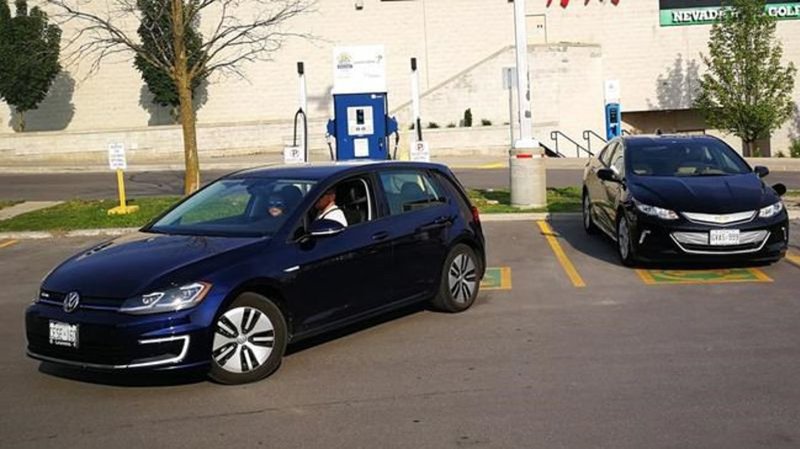
Doug Ford pitching Ontario as electric vehicle leader, but not reintroducing rebates
TORONTO — Doug Ford is pitching Ontario as the next electric vehicle manufacturing powerhouse, seemingly a far cry from the premier who three years ago cancelled incentives for people to buy them.
Where some see contradiction, others see calculated election strategy.
Shortly after coming to power in 2018, Ford’s government scrapped Ontario’s cap-and-trade system, and with it the electric vehicle rebates funded by that program.
He also stopped building charging stations — the provincial transit agency even removed some — and dropped a requirement for new homes to include the wiring for potential EV chargers.


